
Interview Best Practices for Hiring Managers
Tips and tricks on how to lead a great interview

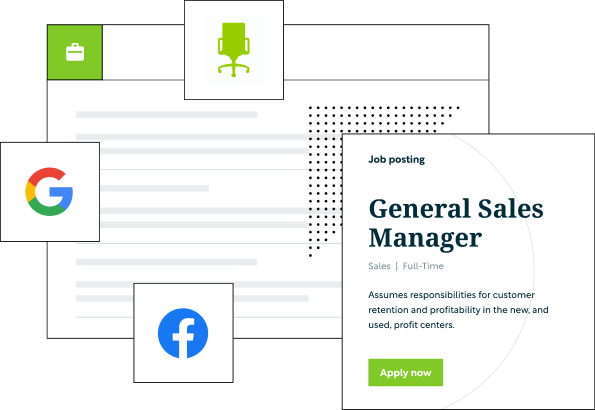
Interview Best Practices for Hiring Managers - Hireology
Everything you need to build your best team
Hireology gives you the process and tools to attract top applicants, hire the right candidate and onboard with ease.
- Intuitive applicant tracking on desktop and mobile
- Integrated with job boards, social media and your career site
- Built-in interview guides, skills tests, references and background checks
- Robust reporting to show hiring velocity, adherence and sourcing ROI to drive more value
Interview Best Practices for Hiring Managers - Hireology
A hiring process your team and candidates will love
Enterprise-caliber solutions connect you with your team and applicants to provide an incredible candidate experience.
- Collaborative and organizational tools like @mentions and tagging drive teamwork and productivity
- Quickly connect with top applicants using text messaging to increase hiring velocity
- Seamlessly transfer applicant data, documents, interviews and notes across roles, hiring managers or locations
- Reach top applicants from anywhere with our mobile app to kickstart the hiring process from anywhere
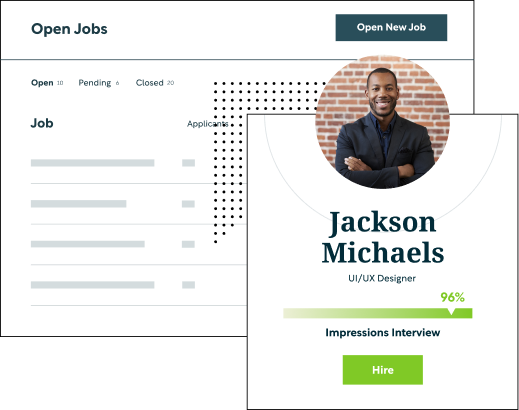
Hire with confidence in our all-in-one platform
Businesses across all industries rely on Hireology to execute a human-centered hiring and people management process that works.

Launch a career site, appear in Google and Facebook Jobs results, post to leading job boards and start internal referral programs.
Text, email and interview candidates, verify skills, references, and background checks all in one place.
Onboard new hires to set them up for success and transfer data to payroll, HRIS, and scheduling systems instantly.
What our customers are saying
Awards and recognition
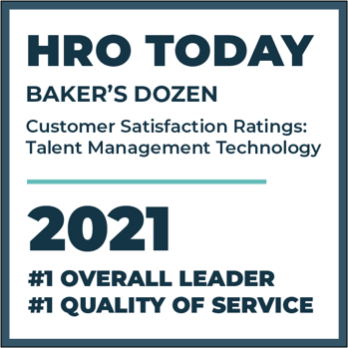

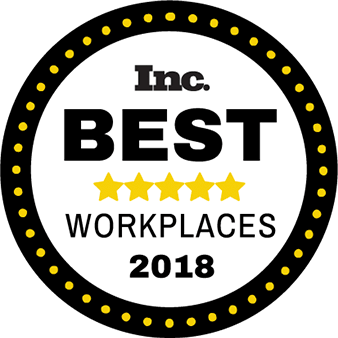

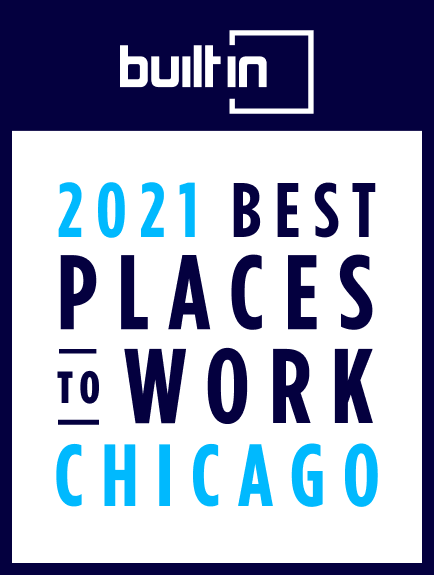
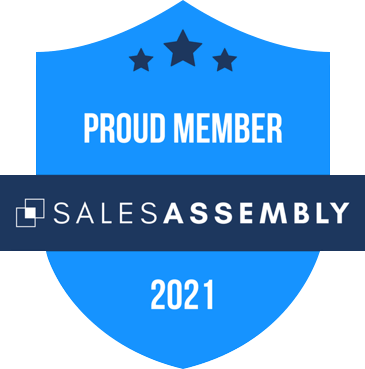
Schedule your free demo
Interview Best Practices For Hiring Managers
Interviews are an essential part of the hiring process and can tell you a lot about your potential new hires. Good interview questions can help you gain insight into your candidates about their fit for the role, and strategic interview questions can help you see how candidates solve problems and articulate themselves.
But it’s important you and your team know how to conduct interviews properly — after all, an interview is also a chance for applicants to evaluate you and your company. And in an applicant driven economy like the one we’re currently in, you want every candidate you interview to be excited to work at your organization.
Inexperienced interviewers can drive applicants away, and even worse, can cost your organization money. How? If an inexperienced interviewer accidentally asks a discriminatory or otherwise illegal interview question, your company can be sued.
So the best way to avoid any financial burden, as well as get great talent into your organization, is to run your hiring team through a crash course in interviews. While you can go through online interview training for managers, you may still need to create a process for your organization that is specifically designed for your team’s unique needs.
That’s why we’ve put together this blog to cover interview best practices for hiring managers, which will include some great interview techniques for employers, interview dos and don’ts, and questions that will help you distinguish great candidates from the rest.
With this blog, you and your team will ace your next interview, and you’ll be able to create a scalable system to run interviews in the future. That way, you can focus on getting to know your candidates and making informed hiring decisions to build a great team.
Interview guidelines for interviewers
The first step to ensuring your team is leading solid interviews is to create interview guidelines for interviewers. This is a list of rules and stipulations that each individual interviewer should follow in order to keep the process consistent and unbiased. You can create an interview criteria checklist that your teammates can follow, or offer interview training for hiring managers to your broader team on a monthly or quarterly basis.
Here are a few things you can include in your interview guidelines and trainings:
- Interviewer preparation before interview is important, so make sure your team members are prepared with questions to ask the candidates.
- It’s the job of the interviewer to make the candidate feel comfortable. Don’t try to be intimidating, and always show that you’re listening. Be receptive to the candidate’s answers and remain engaged throughout the interview.
- If you’re unaware of how to start an interview as the interviewer, the interviewer should try to establish some common ground with the interviewee before diving into the questions, so try to establish rapport as soon as you meet.
- Ask questions that are relevant to the role. Stay away from questions about a candidate’s personal life or habits. With the exception of certain culture questions like “what do you like to do in your free time?”, personal questions should be generally off limits.
- Ask open-ended questions rather than yes or no questions. Questions like “describe how you deal with changing priorities” will give you a lot more information about a candidate than “do you deal well with changing priorities?”
- Try to listen more than you talk. It’s important that the candidate has enough time to explain themselves, so try to limit the amount of time you spend talking.
- Take notes throughout the conversation to make sure you remember the important takeaways. When it comes time to discuss as a team why you did or didn’t like a candidate, you should be able to come up with concrete examples.
Interview dos and don’ts for employers
During the interview, there are some things you should avoid — like asking inappropriate questions — and some things you should make sure you’re doing — like making the interviewee feel at ease. Here are 10 interview dos and don’ts for hiring managers you can share with your team:
Do: come prepared with questions.
Don’t: assume you can wing it.
Do: be cordial and inviting.
Don’t: attempt to intimidate the interviewee.
Do: use non-verbal communication like head nods and eye contact.
Don’t: get distracted by your phone or computer (especially during a virtual interview).
Do: take notes and ask follow up questions.
Don’t: cut your interviewee off mid-sentence.
Do: ask questions specific to the role and qualifications.
Don’t: ask personal or inappropriate questions that may make the candidate uncomfortable.
Do: ask open ended and thought provoking questions.
Don’t: ask yes or no questions.
Do: show the candidates that you value their time by remaining present the entire interview.
Don’t: act as though you’re wasting your time or are too busy for the interview.
Do: ask the same core questions to every candidate to ensure an unbiased hiring process.
Don’t: ask offputting questions to try to trick a candidate.
Do: Provide time for the interviewee to ask you questions.
Don’t: gloss over their question even if you don’t know the answer. Tell them you’ll find out and follow up via email.
Do: proactively provide information on next steps so as to not leave candidates hanging.
Don’t: fail to follow up with candidates you liked as they may have another offer on the table.
By following these interview dos and don’ts for employers, you and your team will lead successful and productive interviews that will help you make great hiring decisions. This list of 10 interview dos and don’ts aren’t exhaustive, so fill out more for your team that apply to your organization.
Interviewing techniques for managers
When your managers begin interviewing, it’s important they understand how to find great candidates, so establish some interviewing techniques for managers to follow. You may really like a candidate, for instance, but their background may not be the right fit. Or you may be looking for candidates who are similar to those already in your organization, commonly referred to as a “culture fit”, but this can lead to biased and discriminatory hiring. Instead, your team should be focusing on finding a “culture add” — that is, someone who adds value and something new to your company’s culture.
You can create an interview guidelines template so that employees can tell when they’re conducting an interview correctly, or you can sit in on their first few interviews to provide support if they get stuck. When it comes to creating recruiter tips for beginners, explain to your new hiring managers the importance of finding the right person for the role and how a good recruitment process can help. And if you don’t have a good recruitment software in place, Hireology can help you and your HR team attract great candidates, move them through the hiring process, and manage their post-hire processes from one seamless system.
Hireology also has interview guidelines for employers built in that you can edit in the platform to make sure your process remains consistent. Instead of offering an Interviewing 101 for Managers course, you can assist hiring managers with their interview process through the software through customizable interview templates and a built-in note and rating system. Anyone internally with access to the role can then review comments and see how a candidate ranked, so you can move great candidates through the process much faster than traditional manual interview tracking allows.
How to be an effective interviewer
Your team may be wondering how to be an effective interviewer, but it’s honestly more simple than it may seem. Your objective is to find great candidates, so you should know what you’re looking for as far as qualifications go. You also should be able to read people and understand which soft skills they may have. For example, you can tell if someone will be a great communicator by the way they respond and elaborate on certain questions.
But for added measure, it’s a good idea to create a checklist for interviewer to prepare for interviews. That way, there’s no question of what’s expected of them. You can also remind interviewers of legal interviewing guidelines so they don’t stray into areas that may get them in trouble.
Certain companies structure their interview process in several rounds, so if this is the process you decide on, make sure each interviewer understands the purpose of their interview. For example, Hireology has a phone screen interview to initially get a grasp on a candidate’s qualifications. Then, if they’re a good fit, we move them on to a culture add interview, where several members of our team ask questions that are a bit more broad but get to the heart of who the candidate is. These questions aren’t tricky or performance based, but rather thought provoking questions to get candidates to open up. After the culture add interview, we ask candidates to do a skills test, which asks them to directly apply their skills to a certain task. Lastly, we’ll have candidates speak with a member of our leadership team as a final sign off.
While it may seem like there’s a lot of steps, our hiring process typically takes less than a month, and that’s partly because every team member understands the importance of effective interviewing. We also work to develop the hiring skills for managers to create a great experience for the candidates.
If you need help with interviewing, Hireology has got you covered. We offer in-platform interview guides and helpful interview questions to keep your process moving. Schedule a demo today to see what else Hireology can do for your recruiting process.
